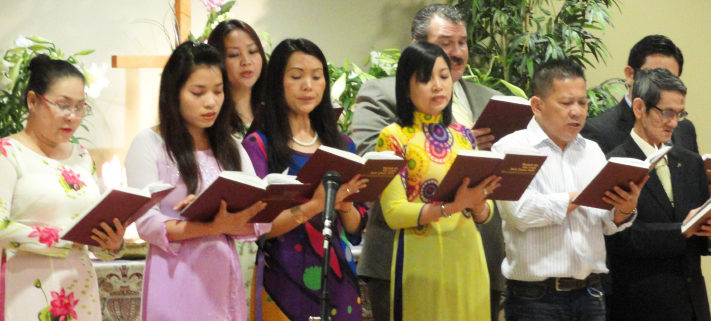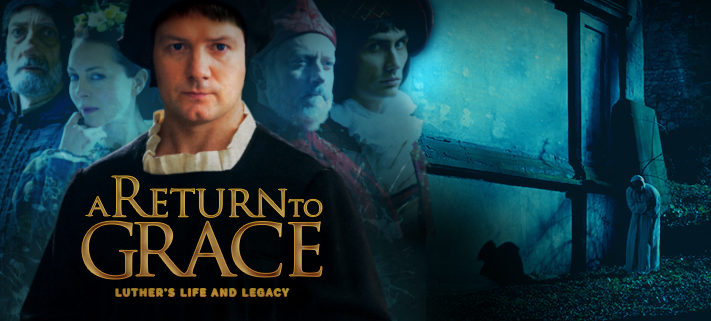Reaching the Vietnamese at Home and Abroad
Truly valuable
Mrs. Quý Thi Nguyen has always been a strong woman. Shortly after beginning a Bible Basics course in their family home, I found out that I basically got kicked out because Mrs. Quý (her name means “valuable”) did not approve. She explained to me how she believed in Buddha, the Four Noble Truths, and the Eight-Fold Path. I thanked her for sharing and continued to find opportunities to witness to her.
Mrs. Valuable’s husband was the first adult confirmand of our congregation. He also was the first Christian funeral. His last words were: “I regret that I was unable to live to see my adult children emigrate from Vietnam. My desire is for my children to follow my faith. I am at peace.”
In the months following the funeral, Mrs. Valuable allowed me to come and visit, even resuming the Bible course in her home. One day, Mrs. Valuable was quite talkative—I couldn’t get a crowbar in the conversation. She spoke of how bad things were when she was living in Vietnam waiting to come to the U.S. She talked of how difficult things were in Vietnam once again. I was pray-ing the whole time she was telling me her stories. Finally, I said, “Mrs. Valuable, I regret to hear of your difficult past. I am thankful for your present. But I am worried about your future.” And for the first time that I had ever seen, Mrs. Valuable began to cry. The walls she had put up began to come down.
Now in a new house and with her adult children emigrated from Vietnam, I concluded the Bible course around their kitchen table. As I was packing up, one of the adult daughters inquired, “Baptism, Pastor?” We are careful not to pressure people to be baptized and often use a mediator to discuss Baptism and church membership. However, when the daughter asked, I was glad to offer this tremendous blessing. The family passed the calendar around, and we settled on a date. Even Mrs. Valuable nodded her head.
When the day came, seven individuals from the family, including Mrs. Valuable herself, stood before God’s altar with wetted brow, all to God’s glory. Now Mrs. Valuable is faithful in worship and even participates in our new senior choir.
During a Christmas season, Mrs. Valuable came to see me. She said, “Pastor, I can’t remember things. I’ll go into a room and not remember why I went in there. I am forgetful. But the prayers in this book . . .” (she held up a copy of Luther’s Small Catechism in the Vietnamese language, which we had introduced during a recent sermon series on prayer) “. . . I can memorize these prayers having read through them just a few times!”
And with that, Mrs. Valuable began reciting Luther’s Morning Prayer in Vietnamese by heart. I must have said and heard that prayer a thousand times, but it had never been more beautifully spoken. Valuable, indeed.
Daniel Kramer is pastor at Peace in Jesus, Boise, Idaho.
The church that helps people
“A lot of people that don’t know English—they come to our church for help,” notes Trung Le, president of Peace in Jesus, Boise, Idaho.
Once they enter the building’s doors, these individuals receive a warm welcome and various offers for assistance. “We like to show them the love of God,” adds Le.
After receiving aid in the form of language classes, translating services, counseling or citizenship classes, many stay to learn more. Congregation members invite visitors to come on Sundays for worship or attend classes that teach about the Bible.
Starting out
Peace in Jesus first formed in 1998, when it began as an exploratory congregation aided by other groups in the area. During the following years, it carried out efforts to reach the Vietnamese community in the Boise region. The pastor of the congregation, Daniel Kramer, learned Vietnamese to connect with those who knew little or no English.
This focus on language caught the attention of many, including Le and his wife. When they moved to Boise in 2006, Le’s wife was a Christian and wanted to attend a Vietnamese-speaking service. “Some of my friends at work told me that at Peace in Jesus the pastor spoke Vietnamese,” recalls Le. His wife wanted to worship there, so he took her.
Le wasn’t a Christian at the time, however, so he didn’t usually go to church with his wife. Then one Sunday in 2008 he decided to come to church with her. “I said, ‘How come this white guy is trying to speak our language?’” Le remembers. “It touched me.”
A few days later, Le met with the pastor and asked to be baptized. After becoming a member, Le decided to continue studying. He is currently in a training program to become a pastor and involved in various forms of outreach and ministry.
Making connections
“The Vietnamese community is growing every year,” notes Le. He estimates the current Vietnamese population to be close to three thousand, with more coming as relatives and friends of residents move to the area.
To reach this group, the congregation offers English classes regularly and helps with translating services. “Sometimes someone comes in and has a doctor’s appointment coming up but doesn’t know much English, so we go along and act as an interpreter,” explains Le.
From its facility, the congregation also offers U.S. citizenship classes, which are open to anyone who needs help. “We have had individuals from various Southeast Asian countries come,” notes Le.
Members of the community can also attend classes that have biblical themes. Vietnamese proverbs and pictures are often incorporated into lessons to help communicate principles. One course, for instance, is entitled “Sau Con Mua, Troi Lai Sáng,” which means “After the Rain, the Sun Shines Again.” Its theme centers on the impact of sin as well as the bright future Jesus provides.
Reaching out globally
As Peace in Jesus has gained a reputation in its community as a church that helps people, its members have continually sought ways to provide further assistance. That desire stretches to an international level, as many have connections with family and friends currently living in Vietnam.
Due to this, an independent entity called “Friends of Vietnam” has formed to reach souls on a global level. “Our goals are to send individuals to Vietnam and bring students from Vietnam to study in schools of our fellowship,” explains Kramer.
Those traveling over to Vietnam will work as teachers in schools there and look for ways to bring the gospel message to those in the country. Students coming from Vietnam to the United States will attend Lutheran schools, where they can learn about the Bible and enjoy spending time with other Christians.
Looking to the future, Le points to God’s guiding hand. “We’ve seen how God works in our congregation,” he explains. “He can make things happen out of nothing. Now it’s our chance to work hard as a way to say ‘thank you’ to him for everything.”
Rachel Hartman and her husband, Missionary Michael Hartman, serve in León, Mexico.
This is the first article in a series about cross-cultural outreach in the U.S. Check out “Home mission connections lead to world mission opportunities” (p. 23) to learn how contacts made in the U.S. are leading to mission work around the world. Learn more about Peace in Jesus in this month’s edition of WELS Connection.
SUBMIT YOUR STORY
Do you have a manuscript, idea, or story from your own life you’d like to share for use in Forward in Christ or on wels.net? Use our online form to share it to our editorial office for consideration.
SUBSCRIBE TO FORWARD IN CHRIST
Get inspirational stories, spiritual help, and synod news from Forward in Christ every month. Print and digital subscriptions are available from Northwestern Publishing House.
Author: Rachel Hartman and Daniel Kramer
Volume 104, Number 2
Issue: February 2017
Copyrighted by WELS Forward in Christ © 2021
Forward in Christ grants permission for any original article (not a reprint) to be printed for use in a WELS church, school, or organization, provided that it is distributed free and indicate Forward in Christ as the source. Images may not be reproduced except in the context of its article. Contact us










